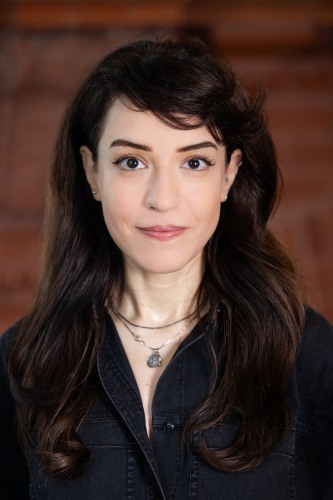
Sareh Afshar
Biography
Sareh Z Afshar, the Artemis A.W. and Martha Joukowsky Postdoctoral Fellow, is a scholar of performance and critical cultural studies whose areas of research include the aesthetics of everyday life, materiality of visuality, memory and trauma theory, social movements and solidarity, and digital and new media. Their book project, “Authority and Ambiguity,” builds on their dissertation project to expand the limits imposed on our views of the functions of power through bodies, preset by our Eurocentric and neocolonial definitions of bodies and power. A graduate of the Department of Performance Studies at New York University, her doctoral dissertation, “Dying to Be Somebody: Performances of Death, Power and Personhood in Postrevolutionary Iran,” was nominated for NYU’s University-Wide Outstanding Dissertation Award. They hold an MPhil and MA from the same department, and an MA in communication and MS in learning technologies and media systems from other institutions. Their writing has appeared or is forthcoming in TDR: The Drama Review, e-misférica, TPQ: Text & Performance Quarterly, Interventions: International Journal of Postcolonial Studies, Khayyam, Ravagh, and edited book volumes. They have taught courses at NYU’s Tisch School of the Arts, College of Arts & Science, and Tandon School of Engineering, as well as at Montclair State University and Purdue, and served as managing editor to e-misférica and Ravagh and assistant editor to TDR: The Drama Review. She has lost more than two cities—lovely ones, Montréal, Tehran, New York—but deems Providence a soothing compromise. Together with Narges Bajoghli, they are co-editor of Feminist Futures, a multimedia platform the two of them dreamt up and realized through the Rethinking Iran Initiative at Johns Hopkins University, which features bilingual critical reflections and provocations by leading theorists, artists, and activists from around the world.
In Spring 2023, Sareh is teaching the GNSS course, “Woman*, Life, Freedom: Global Feminist Liberation Movements,” which explores how an avowal of woman* and life have been and will remain prerequisites to liberation, particularly in our tumultuous present.